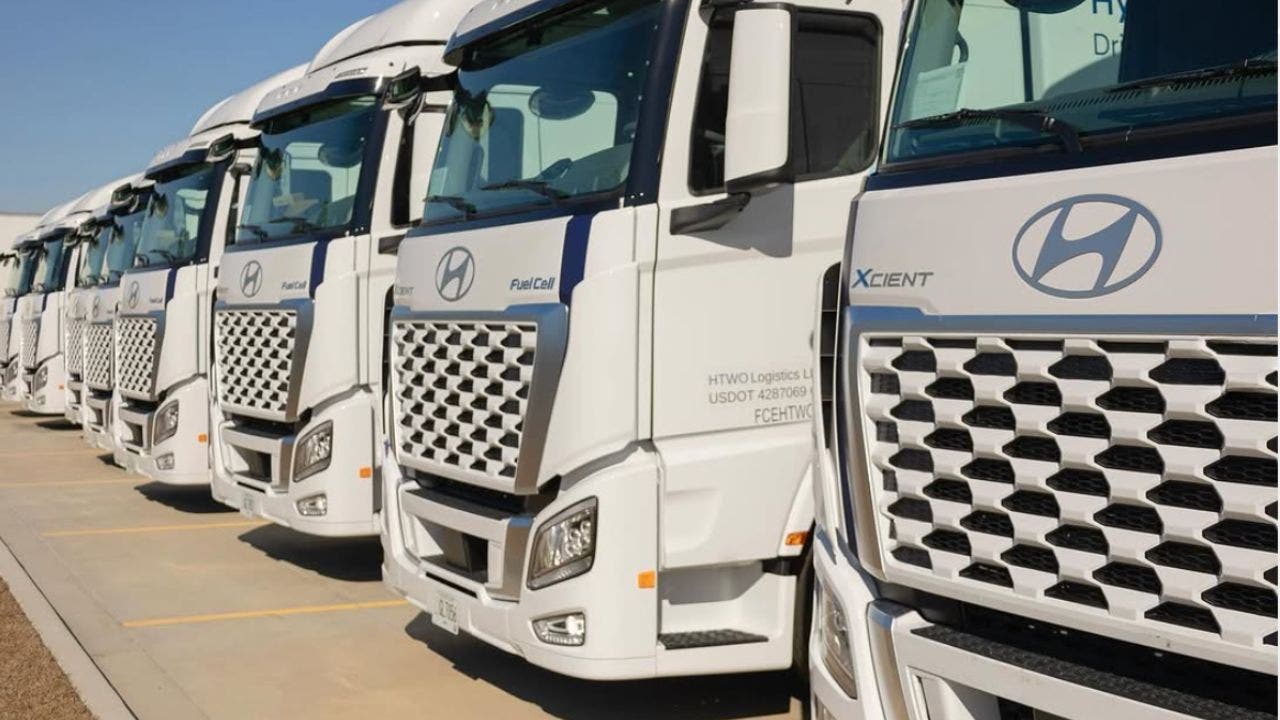Hydrogen fuel cell trucks hit the roads in Georgia

Hydrogen-Powered Trucks: Fueling a Green Revolution in Logistics
Benore Leads the Charge in Savannah
Imagine a future where the roar of trucks on the highway isn't accompanied by a plume of exhaust. Benore Logistic Systems Inc. is making that vision a reality in Savannah, Georgia, with the addition of 14 Hyundai Xcient hydrogen-powered trucks to their fleet. This bold move positions Benore as a pioneer in sustainable freight transportation, showcasing their commitment to a greener future.
These new trucks, boasting a 450-mile range, are servicing the Hyundai Motor Group Metaplant America, a facility dedicated to clean logistics operations. This expansion builds upon Benore's initial foray into hydrogen power in 2022, when they introduced their first four fuel cell trucks.
Dennis Kunz, vice president of revenue strategy and operation development at Benore, emphasized the significance of this initiative: "These hydrogen fuel cell trucks represent a significant step forward for Benore and our ability to deliver innovative, sustainable logistics solutions."
Powering Partnerships and Infrastructure
This initiative is a collaborative effort between Benore, Hyundai Motor Group, and HTWO Logistics, highlighting a shared commitment to sustainable solutions. Hyundai manufactures the trucks, HTWO oversees their deployment, and Benore manages daily logistics, ensuring seamless Just-In-Time and Just-In-Sequence operations.
Crucial to the project's success is HydroFleet's $33 million investment in a hydrogen production and refueling hub near Savannah's port. This facility can currently refuel 21 trucks daily, with the capacity to expand to over 300, paving the way for wider adoption of hydrogen-powered freight.
Navigating the Road to a Hydrogen Future
Benore joins industry giants like Werner and DHL Supply Chain in embracing hydrogen technology, with Hyundai leading the charge in North America. The potential environmental benefits are substantial, with each Class 8 truck capable of eliminating over 400 metric tons of CO2 annually.
The journey, however, isn't without its challenges. High initial costs related to fuel cell technology and hydrogen storage pose a significant barrier. The limited hydrogen fueling infrastructure and current reliance on methane-based hydrogen production further complicate the transition.
Ongoing technological advancements are essential to address these hurdles. Further testing will help verify range estimates, assess performance in diverse conditions, and address maintenance concerns related to fueling station uptime. Achieving cost parity with diesel fuel remains a critical goal.
Hydrogen vs. Electric: A Comparative Look
Hydrogen vehicles offer faster refueling and lighter storage than electric vehicles (EVs). However, hydrogen production is more energy-intensive, and EVs have their own sustainability challenges associated with battery materials. Both technologies represent crucial steps toward cleaner transportation, each with its own set of advantages and drawbacks.
A Glimpse into the Future
Benore's investment in hydrogen-powered trucking is a testament to the evolving landscape of logistics. As Kunz points out, these initiatives are shaping a cleaner transportation future. Savannah's emergence as a hub for hydrogen innovation marks a promising chapter in the pursuit of sustainable logistics.
Kurt Knutsson, the "CyberGuy," sees this development as a powerful statement about the future. He adds, "It will be interesting to see where this will take us."